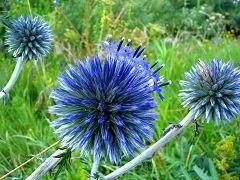Table of contents:
- Pentalgin
- Release form and composition
- Pharmacological properties
- Indications for use
- Contraindications
- Instructions for the use of Pentalgin: method and dosage
- Side effects
- Overdose
- special instructions
- Drug interactions
- Analogs
- Terms and conditions of storage
- Terms of dispensing from pharmacies
- Reviews about Pentalgin
- Price for Pentalgin in pharmacies
- Pentalgin: prices in online pharmacies

Video: Pentalgin - Instructions For The Use Of Tablets, Price, Composition, Analogues

2024 Author: Rachel Wainwright | [email protected]. Last modified: 2023-12-15 07:39
Pentalgin
Pentalgin: instructions for use and reviews
- 1. Release form and composition
- 2. Pharmacological properties
- 3. Indications for use
- 4. Contraindications
- 5. Method of application and dosage
- 6. Side effects
- 7. Overdose
- 8. Special instructions
- 9. Drug interactions
- 10. Analogs
- 11. Terms and conditions of storage
- 12. Terms of dispensing from pharmacies
- 13. Reviews
- 14. Price in pharmacies
Latin name: Pentalgin
ATX code: N02BB74
Active ingredient: drotaverine + pheniramine maleate + caffeine + paracetamol + naproxen (drotaverine + pheniramine maleate + caffeine + paracetamol + naproxen)
Producer: JSC "Pharmstandard-Leksredstva" (Russia)
Description and photo update: 2019-16-08
Prices in pharmacies: from 49 rubles.
Buy

Pentalgin is a drug of combined composition with antispasmodic, analgesic, anti-inflammatory and antipyretic effects.
Release form and composition
Dosage form Pentalgin - film-coated tablets: capsule-shaped, biconvex, with beveled edges, from light green to green, on one side - embossed "PENTALGIN", on the other - risk; on the cut a light green tablet with white splashes (2, 6, 10 or 12 tablets in a blister strip, 1 or 2 packs in a cardboard box).
Active ingredients in 1 tablet:
- Paracetamol - 325 mg;
- Pheniramine maleate - 10 mg;
- Naproxen - 100 mg;
- Drotaverine hydrochloride - 40 mg;
- Caffeine 50 mg
Additional components in the composition of Pentalgin: citric acid monohydrate, magnesium stearate, croscarmellose sodium, potato starch, talc, microcrystalline cellulose, butylhydroxytoluene (E321), hyprolose (hydroxypropyl cellulose) (clutsel EF), indigo carmine (E132), dye E132
The composition of the film coating tablet: povidone (medium molecular weight polyvinylpyrrolidone), titanium dioxide, indigo carmine (E132), hypromellose (hydroxypropyl methylcellulose), quinoline yellow dye (E104), talc, polysorbate 80 (tween 80).
Pharmacological properties
Pharmacodynamics
Paracetamol is a non-narcotic analgesic that produces analgesic and antipyretic effects. Its action is explained by the blockade of cyclooxygenase in the central nervous system and the effect on the centers of thermoregulation and pain.
Pheniramine is a blocker of H 1 -histamine receptors, which has a slight sedative and antispasmodic effect. It enhances the analgesic effect characteristic of naproxen and paracetamol, and also reduces the severity of exudation phenomena.
Naproxen is a non-steroidal anti-inflammatory drug characterized by antipyretic, analgesic and anti-inflammatory effects. It non-selectively inhibits the activity of cyclooxygenase, which is responsible for the regulation of prostaglandin synthesis.
Drotaverine exhibits a myotropic antispasmodic effect, the mechanism of which is to inhibit phosphodiesterase IV and affect smooth muscles in the cardiovascular and genitourinary systems, biliary tract and gastrointestinal tract.
Caffeine has a tonic effect on the vessels of the brain. It also promotes the expansion of blood vessels of the kidneys, heart and skeletal muscles, increases the permeability of histohematogenous barriers and increases the bioavailability of non-narcotic analgesics, thereby providing an increase in the therapeutic effect. Caffeine improves physical and intellectual performance, helps fight sleepiness and fatigue.
Pharmacokinetics
The pharmacokinetics of Pentalgin have not been sufficiently studied.
Indications for use
- Pain syndrome of various origins, including headache (including pain due to vasospasm of the brain), toothache, algomenorrhea, neuralgia, sciatica, muscle and joint pain;
- Pain syndrome caused by smooth muscle spasm, including postcholecystectomy syndrome, cholelithiasis and chronic cholecystitis, as well as renal colic;
- Postoperative and post-traumatic pain, incl. in the presence of inflammation;
- Feverish colds (symptomatic therapy).
Contraindications
Absolute:
- Age under 18;
- Pregnancy;
- Lactation period;
- Severe renal impairment;
- Gastrointestinal bleeding;
- Erosive and ulcerative lesions of the gastrointestinal tract (GIT) during an exacerbation;
- Hyperkalemia;
- Condition after coronary artery bypass grafting;
- Acute myocardial infarction and other severe organic diseases of the cardiovascular system;
- Severe arterial hypertension;
- Frequent ventricular premature beats;
- Paroxysmal tachycardia;
- Severe liver failure;
- Complete or incomplete combination of bronchial asthma, recurrent polyposis of the nose and paranasal sinuses, as well as intolerance to non-steroidal anti-inflammatory drugs (NSAIDs), including acetylsalicylic acid (currently or in history);
- Oppression of bone marrow hematopoiesis;
- Hypersensitivity to the components in Pentalgin.
Relative:
- Benign hyperbilirubinemia (Dubin-Johnson, Rotor, Gilbert syndromes);
- Viral hepatitis;
- Renal / hepatic impairment of mild to moderate severity;
- Alcoholic liver damage;
- Diabetes;
- History of ulcerative lesions of the gastrointestinal tract;
- Peripheral artery disease;
- Deficiency of glucose-6-phosphate dehydrogenase;
- Cerebrovascular disease;
- Epilepsy and tendency to seizures;
- Elderly age.
Instructions for the use of Pentalgin: method and dosage
Pentalgin tablets are taken orally 1 pc. up to 3 times a day. In some cases, it is possible to increase the daily dose to 4 tablets.
The duration of the use of Pentalgin depends on the indications: for relief of pain syndrome - no more than 5 days, to reduce fever - no more than 3 days. An increase in the duration of treatment is possible only as directed by the attending physician.
Side effects
- From the urinary system: impaired renal function;
- From the side of the cardiovascular system: arrhythmias, palpitations, increased blood pressure;
- From the senses: tinnitus, hearing loss; in patients with angle-closure glaucoma - increased intraocular pressure;
- From the side of the central nervous system (CNS): sleep disturbances, increased reflexes, decreased concentration, anxiety, headache, agitation, dizziness, tremor;
- From the side of the hematopoietic system: a decrease in the level of agranulocytes, leukocytes, erythrocytes or platelets in the blood, an increase in the amount of methemoglobin;
- On the part of the digestive system: epigastric discomfort, nausea, vomiting, constipation, abdominal pain, erosive and ulcerative lesions of the gastrointestinal tract, liver dysfunction;
- Allergic and skin reactions: itching, urticaria, skin rash, dermatitis, angioedema;
- Others: tachypnea (rapid breathing).
Overdose
Symptoms of an overdose of Pentalgin are quite numerous. These include: an increase in prothrombin time, pallor of the skin, nausea, vomiting, lack of appetite (anorexia), abdominal pain, gastrointestinal bleeding, hepatonecrosis, increased activity of hepatic transaminases, motor restlessness, agitation, muscle twitching or tremors, epileptic seizures, confusion, headache, frequent urination, hyperthermia (elevated body temperature), arrhythmia, tachycardia.
Signs of liver dysfunction may be observed 12 to 48 hours after overdose. Severe overdose is accompanied by liver failure with progressive encephalopathy, pancreatitis, arrhythmia, acute renal failure with tubular necrosis, and coma. Death is also possible. At the slightest suspicion of an overdose of Pentalgin, you should consult a doctor.
As a treatment, gastric lavage followed by the intake of activated carbon is recommended. For paracetamol, the specific antidote is acetylcysteine, which is used in case of poisoning with this substance. The introduction of acetylcysteine into the body must be ensured no later than 8 hours after an overdose. In case of gastrointestinal bleeding, antacids are administered and the stomach is washed with ice-cold 0.9% sodium chloride solution. If necessary, resort to oxygenation and maintenance of ventilation. During epileptic seizures, intravenous diazepam gives good results, and careful monitoring of the balance of salts and fluid is required and its maintenance at a normal level.
special instructions
According to the instructions, Pentalgin should not be used simultaneously with NSAIDs, paracetamol-containing drugs and agents intended for the symptomatic treatment of colds.
With prolonged therapy (more than 5-7 days), the state of liver function and peripheral blood parameters should be monitored.
The effect of caffeine on the central nervous system depends on its type and can manifest itself to varying degrees - from excitement to inhibition of higher nervous activity.
Under the influence of paracetamol, the results of laboratory tests on the content of glucose and uric acid in the blood plasma are distorted.
Naproxen, which is part of Pentalgin tablets, increases bleeding time.
Pentalgin should be discontinued 48 hours before the scheduled study for the determination of 17-ketosteroids.
During treatment, it is necessary to stop drinking alcohol, be careful when driving and performing potentially unsafe types of work that require quick reactions and increased attention.
Drug interactions
Long-term barbiturates reduce the effectiveness of paracetamol.
Diflunisal increases the plasma concentration of paracetamol by 50%, as a result of which the risk of developing its hepatotoxicity increases.
Paracetamol reduces the effect of uricosuric drugs, enhances the effect of indirect anticoagulants.
Ethanol taken during the period of treatment with Pentalgin increases the risk of developing acute pancreatitis.
Inhibitors of microsomal oxidation (eg, cimetidine) reduce the likelihood of the hepatotoxic effect of paracetamol.
Drotaverine, which is part of Pentalgin, can weaken the antiparkinsonian effect of levodopa.
Pheniramine - one of the active ingredients of Pentalgin - when interacting with ethanol, monoamine oxidase inhibitors, tranquilizers and hypnotics enhances the depressing effect on the central nervous system.
With the simultaneous use of ethanol, tricyclic antidepressants, barbiturates or rifampicin, the risk of toxic effects on the liver increases, so such combinations should be avoided.
Another active ingredient of Pentalgin, naproxen, can reduce the diuretic effect of furosemide, enhance the effect of indirect anticoagulants, increase the toxicity of methotrexate and sulfonamides, reduce the excretion of lithium and increase its concentration in the blood plasma.
With the simultaneous use of other drugs that stimulate the central nervous system, or the use of caffeinated beverages, excessive stimulation of the central nervous system is possible.
Anticonvulsants derived from hydantoin (especially phenytoin), barbiturates and primidone can increase metabolism and increase the clearance of caffeine.
Oral contraceptives, disulfiram, cimetidine, norfloxacin and ciprofloxacin reduce the metabolism of caffeine in the liver, thereby slowing down its excretion and increasing the concentration in the blood.
Analogs
Analogs of Pentalgin are: Ibuprofen, Paracetamol, Pentalgin FS, Pentalgin Plus, Cardiomagnyl, Amizon, Analgin.
Terms and conditions of storage
Store at a temperature not exceeding 25 ° C, in a dry, dark place and out of reach of children.
Shelf life is 2 years.
Terms of dispensing from pharmacies
Available without a prescription.
Reviews about Pentalgin
Mostly reviews about Pentalgin are left by women who take it during menstruation, accompanied by intense pain. Also, over a period of time, the drug helps to get rid of toothache and headache. There are often discussions among patients on the topic of what Pentalgin helps best. Some of them compare it with analogues (for example, Pentalgin FS), which are even better at coping with severe muscle pain. Doctors say that self-medication with Pentalgin is fraught with serious health complications and often worsens the course of the disease. Therefore, before starting treatment, you should seek the advice of a specialist.
Price for Pentalgin in pharmacies
The approximate price for Pentalgin varies from 55 to 110 rubles (for a package containing 4 tablets), from 95 to 147 rubles (for a package containing 12 tablets) or from 160 to 227 rubles (for a package containing 24 tablets).
Pentalgin: prices in online pharmacies
|
Drug name Price Pharmacy |
|
Pentalgin film-coated tablets 4 pcs. RUB 49 Buy |
|
Pentalgin tablets p.p. without codeine 4 pcs. 84 rbl. Buy |
|
Pentalgin film-coated tablets 12 pcs. RUB 85 Buy |
|
Pentalgin tablets p.p. without codeine 12 pcs. 122 RUB Buy |
|
Pentalgin film-coated tablets 24 pcs. 151 RUB Buy |
|
Pentalgin extra-gel 5% gel for external use 50 g 1 pc. 171 r Buy |
|
Reviews Pentalgin extra-gel 171 r Buy |
|
Pentalgin extra-gel 5% gel for external use 30 g 1 pc. 174 r Buy |
|
Pentalgin tablets p.p. without codeine 24 pcs. 201 RUB Buy |
|
Pentalgin extra-gel 5% gel for external use 100 g 1 pc. 403 RUB Buy |
|
Pentalgin extra-gel gel d / nar. approx. 5% tube 100g RUB 514 Buy |
| See all offers from pharmacies |

Anna Kozlova Medical journalist About the author
Education: Rostov State Medical University, specialty "General Medicine".
Information about the drug is generalized, provided for informational purposes only and does not replace the official instructions. Self-medication is hazardous to health!
Recommended:
Chest Collection Number 2 - Instruction, Use Of Cough For Children, Composition

Instructions for use Chest collection No. 2 for cough. Information on the composition, prescription for children, contraindications, reviews, analogues and the price of the drug in pharmacies
Breast Collection Number 3 - Instruction, Use Of Cough For Children, Composition

Instructions for use Chest collection No. 3 for cough. Information on the composition, prescription for children, contraindications, reviews, analogues and the price of the drug in pharmacies
Mordovnik - Useful Properties, Use Of Seeds, Composition

Mordovnik is a plant of the Astrov family. In folk medicine, muzzle seeds are used as a diuretic, to relieve headaches, treat hypertension, relieve epileptic seizures
Erispirus - Instruction, Use For Children, Price, Tablets, Syrup

Instructions for use Erispirus tablets and syrup. Information on the dosage for children, contraindications, reviews, analogues and the price of the drug in pharmacies
Apricots - Calorie Content, Composition, Useful Properties, Use On A Diet

The calorie content of apricots is extremely low and amounts to a maximum of 55 kcal per 100 grams, so this fruit is used in many diets






